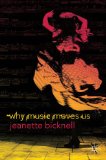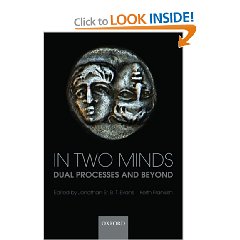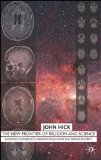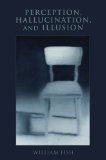April 30, 2009

Why Music Moves Us by Jeanette Bicknell (Palgrave MacMillan, 2009)
Product information from the publisher:
Surely you’ve experienced it before: you’re listening to a piece of music and all of a sudden you find a lump in your throat, a tear in your eye, or a chill down your spine. Whether it’s Beethoven’s Choral Symphony or The Verve’s ‘Bittersweet Symphony’, a bit of blues or a bit of baroque, music has the power to move us. It’s a language which we all speak. But why does it have this effect on us? What is going on, emotionally, physically and cognitively when listeners have strong emotional responses to music? What, if anything, do such responses mean? Can they tell us anything about ourselves? Jeanette Bicknell uses research in philosophy, psychology, neuroscience, and anthropology to address these questions, ultimately showing us that the reason why some music tends to arouse powerful experiences in listeners is inseparable from the reason why any music matters at all. Musical experience is a social one, and that is fundamental to its attractions and power over us.
The author’s website has a chapter-by-chapter synopsis.
Comments (0)
- culture,new books,philosophy of mind,psychology
April 23, 2009
In Two Minds: Dual Processes and Beyond edited by Jonathan Evans and Keith Frankish (Oxford University Press, 2009)

(link for UK)
Product description from the publisher:
This book explores the idea that we have two minds – one that is automatic, unconscious, and fast, the other controlled, conscious, and slow. In recent years there has been great interest in so-called dual-process theories of reasoning and rationality. According to dual process theories, there are two distinct systems underlying human reasoning – an evolutionarily old system that is associative, automatic, unconscious, parallel, and fast, and a more recent, distinctively human system that is rule-based, controlled, conscious, serial, and slow. Within the former, processes are held to be innate and to use heuristics which evolved to solve specific adaptive problems. In the latter, processes are taken to be learned, flexible, and responsive to rational norms.
Despite the attention these theories are attracting, there is still poor communication between dual-process theorists themselves, and the substantial bodies of work on dual processes in cognitive psychology and social psychology remain isolated from each other. This book brings together leading researchers on dual-processes to summarize the state of the art, highlight key issues, present different perspectives, explore implications, and provide a stimulus to further work.
It includes new ideas about the human mind both by contemporary philosophers interested in broad theoretical questions about mental architecture and by psychologists specialising in traditionally distinct and isolated fields. For all those in the cognitive sciences, this is a book that will advance dual-process theorizing, promote interdisciplinary communication, and encourage further applications of dual-process approaches.
Comments (0)
- cognitive science,new books,philosophy of mind
March 28, 2009

John Hick, a prominent philosopher of religion, published New Frontier of Religion and Science: Religious Experience, Neuroscience, and the Transcendent in 2006. This was one of the books cited by Mark Vernon in Wellbeing, so I decided to check it out.
Hick criticizes mind-brain identity theory and other naturalistic theories of consciousness such as epiphenomenalism and emergence, clearing the way for an approach that supports the validity of religious experience. He proposes a Kantian account that accommodates religious pluralism. One interesting idea introduced by Hick is that of levels of meaning, physical, ethical and religious, (he could also have included social/cultural) that correspond to increasing degrees of cognitive freedom, so we have the least amount of freedom in relation to physical reality, a greater amount in relation to ethics and the most freedom in relation to religious experience:
(p 145)The supra-natural … environment, whether experienced as a personal God or a transpersonal Reality is always and everywhere there to be accessed, but is not forced upon our consciousness.
This is why, from a religious point of view, experience of the Transcendent is neither universal nor uniform. It is not universal, at any given time, because it is not forced, or does not force itself, upon anyone; and it is not uniform around the world because the human contribution to the forms of authentic religious experience varies within the different cultures and traditions of the earth.
The book could have used some proofreading, as there were a number of distracting errors. Also the first section on institutional religion was a preliminary discussion that could easily be skipped over.
Readers who are open to non-naturalistic theorizing would be most likely to enjoy this book.
Comments (0)
- consciousness,philosophy of mind
March 22, 2009

Effective Intentions: The Power of Conscious Will by Alfred Mele (Oxford University Press, 2009) with a “Look Inside” preview available from Amazon.
(If the cover looks familiar it has the same photo as another recent Oxford Press book; however, the Oxford website shows a different cover.)
Product description – from the publisher:
Each of the following claims has been defended in the scientific literature on free will and consciousness: your brain routinely decides what you will do before you become conscious of its decision; there is only a 100 millisecond window of opportunity for free will, and all it can do is veto conscious decisions, intentions, or urges; intentions never play a role in producing corresponding actions; and free will is an illusion.
In Effective Intentions Alfred Mele shows that the evidence offered to support these claims is sorely deficient. He also shows that there is strong empirical support for the thesis that some conscious decisions and intentions have a genuine place in causal explanations of corresponding actions. In short, there is weighty evidence of the existence of effective conscious intentions or the power of conscious will. Mele examines the accuracy of subjects’ reports about when they first became aware of decisions or intentions in laboratory settings and develops some implications of warranted skepticism about the accuracy of these reports. In addition, he explores such questions as whether we must be conscious of all of our intentions and why scientists disagree about this. Mele’s final chapter closes with a discussion of imaginary scientific findings that would warrant bold claims about free will and consciousness of the sort he examines in this book.
Comments (0)
- new books,philosophy of mind
March 18, 2009

Perception, Hallucination, and Illusion by William Fish (Oxford University Press, 2009) has a “Look Inside” preview at Amazon.
Product Description
The idea of a disjunctive theory of visual experiences first found expression in J.M. Hinton’s pioneering 1973 book Experiences. In the first monograph in this exciting area since then, William Fish develops a comprehensive disjunctive theory, incorporating detailed accounts of the three core kinds of visual experience–perception, hallucination, and illusion–and an explanation of how perception and hallucination could be indiscriminable from one another without having anything in common. In the veridical case, Fish contends that the perception of a particular state of affairs involves the subject’s being acquainted with that state of affairs, and that it is the subject’s standing in this acquaintance relation that makes the experience possess a phenomenal character. Fish argues that when we hallucinate, we are having an experience that, while lacking phenomenal character, is mistakenly supposed by the subject to possess it. Fish then shows how this approach to visual experience is compatible with empirical research into the workings of the brain and concludes by extending this treatment to cover the many different types of illusion that we can be subject to.
Comments (0)
- new books,philosophy of mind







